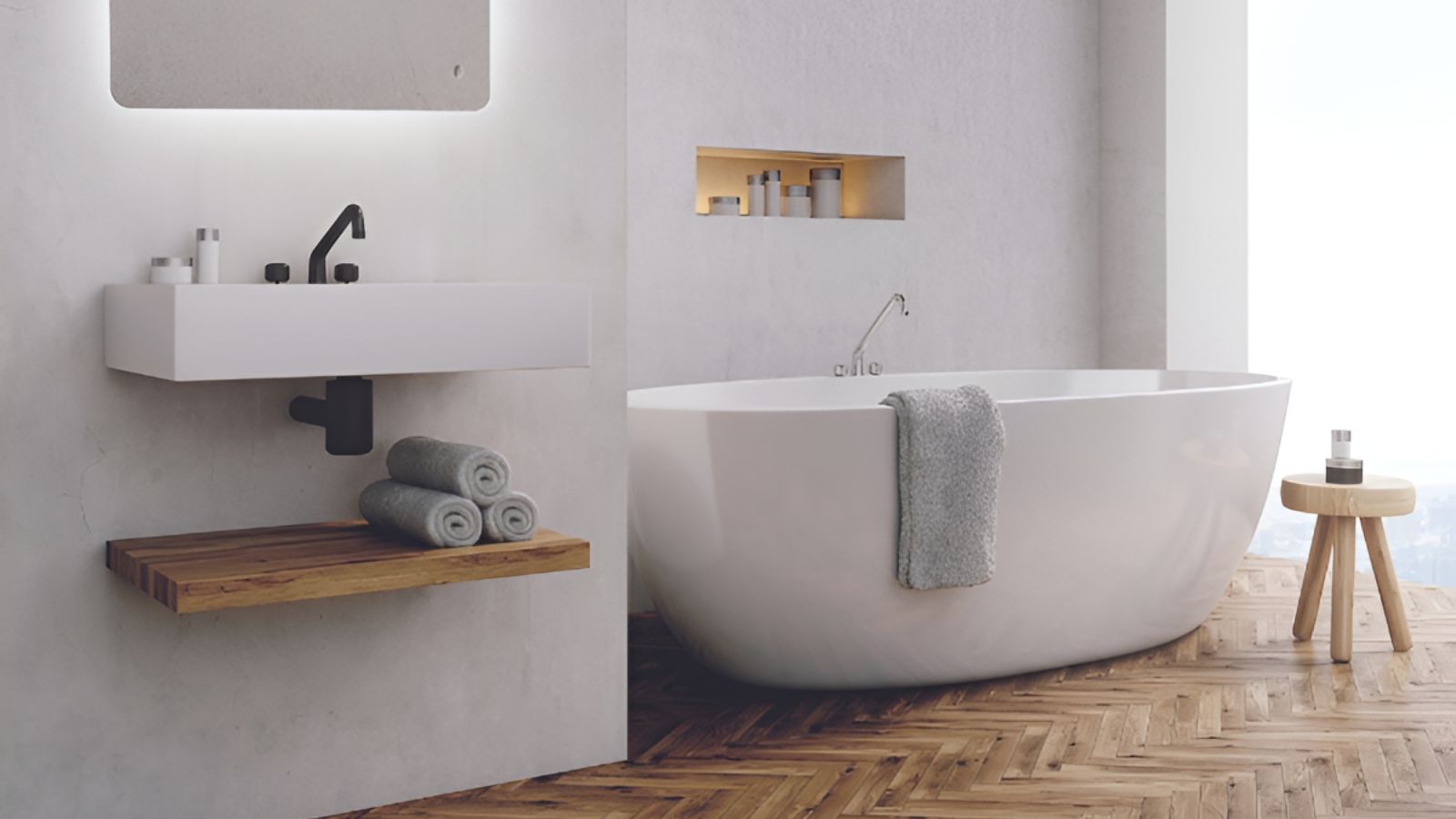
Properly draining a plumbing system is a crucial maintenance task that can prevent issues and prolong the life of your plumbing components.
Draining your home's plumbing system may be necessary for various reasons, such as preventing or fixing a water hammer problem, a major plumbing issue – for example, if you are worried about pipes freezing – or shutting down a property for the winter.
We asked plumbing experts how to drain a plumbing system. Below are the seven simple steps they recommended you can do yourself, as well as some additional advice, including cleaning tips.
How to drain your home's plumbing system
Remember to always follow the manufacturer's instructions when working with your water heater and other appliances.
1. Turn off the main water valve
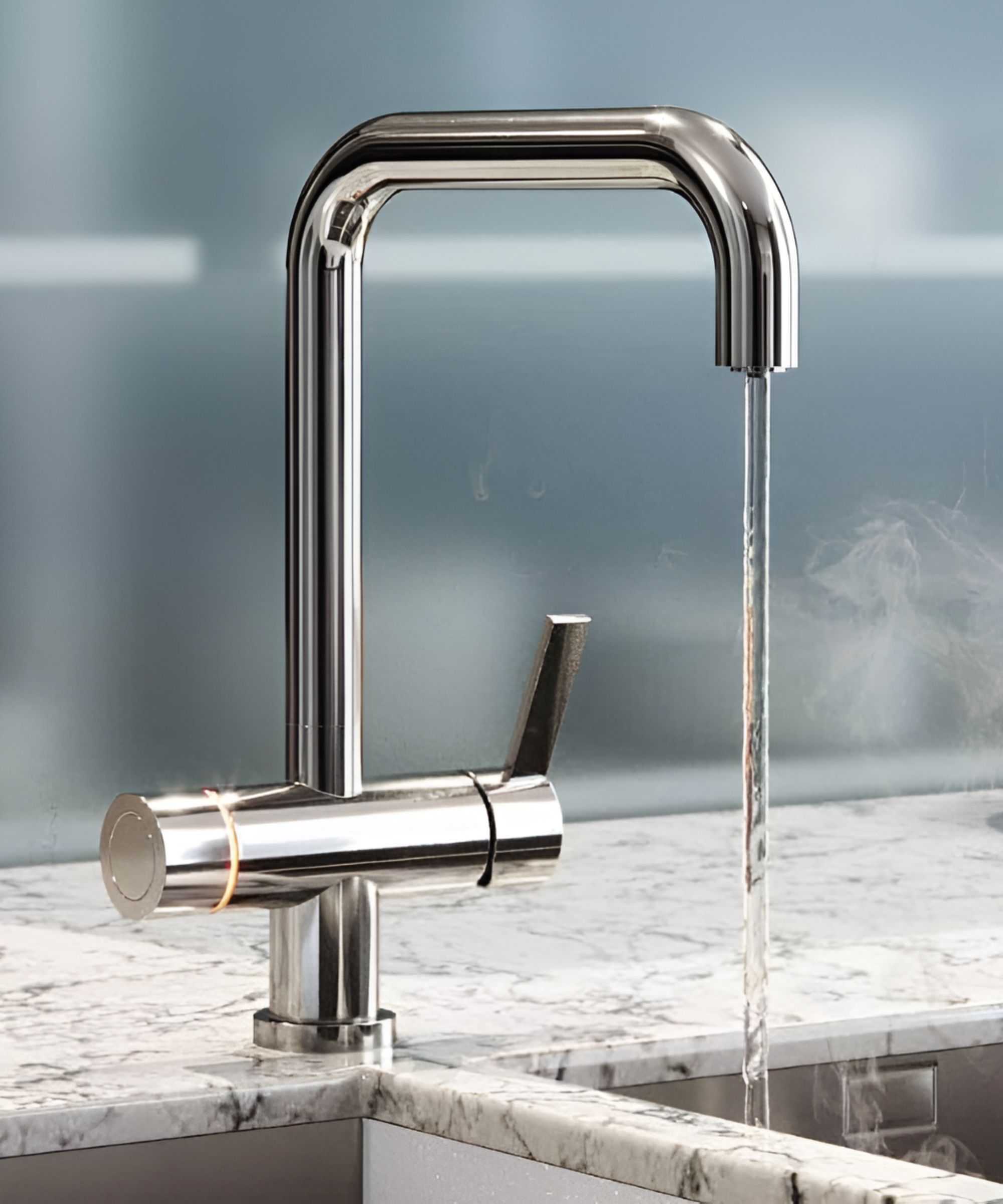
'Locate the main shut-off valve for your water supply and turn it off,' advises Mehdi Khachani, professional plumber and founder of JMK Plumbing. 'This valve is typically found near the water meter or where the main water line enters your home.'
Turn the valve clockwise until it stops. This will prevent any water from entering the system while you drain it and causing damage.
2. Open all the faucets
'Starting from the top floor of your home, open all the faucets, including the bathtub, shower, and sink faucets. This will allow the water to drain out and allow air to enter the pipes,' explains Shlomo Cherniak, owner of Cherniak Handyman Services. 'Work your way down to the lower levels, opening the faucets in each room.'
This will help to release any remaining water in the pipes and prevent water damage. Starting with the top floor will push air into the system and help the flow of water.
'Flush all the toilets in your home to empty the tanks,' adds Josh Mitchell, plumbing technician and the owner of Plumbing Lab. 'For any remaining water in the toilet bowls or tanks, use a sponge or a small cup to remove it.'
Soaking up all the water from these areas is important to prevent standing water from causing damage. You can use a large sponge, like this one from Amazon, for such tasks.
'Don't forget faucets in the basement, outdoor areas, and any utility rooms,' says Josh Mitchell. 'Go to the lowest level in your home and open the faucet in your laundry tub or the lowest level faucet. Let all the water from the above floors drain out. This will help ensure that the entire plumbing system is drained.'
3. Drain the water heater
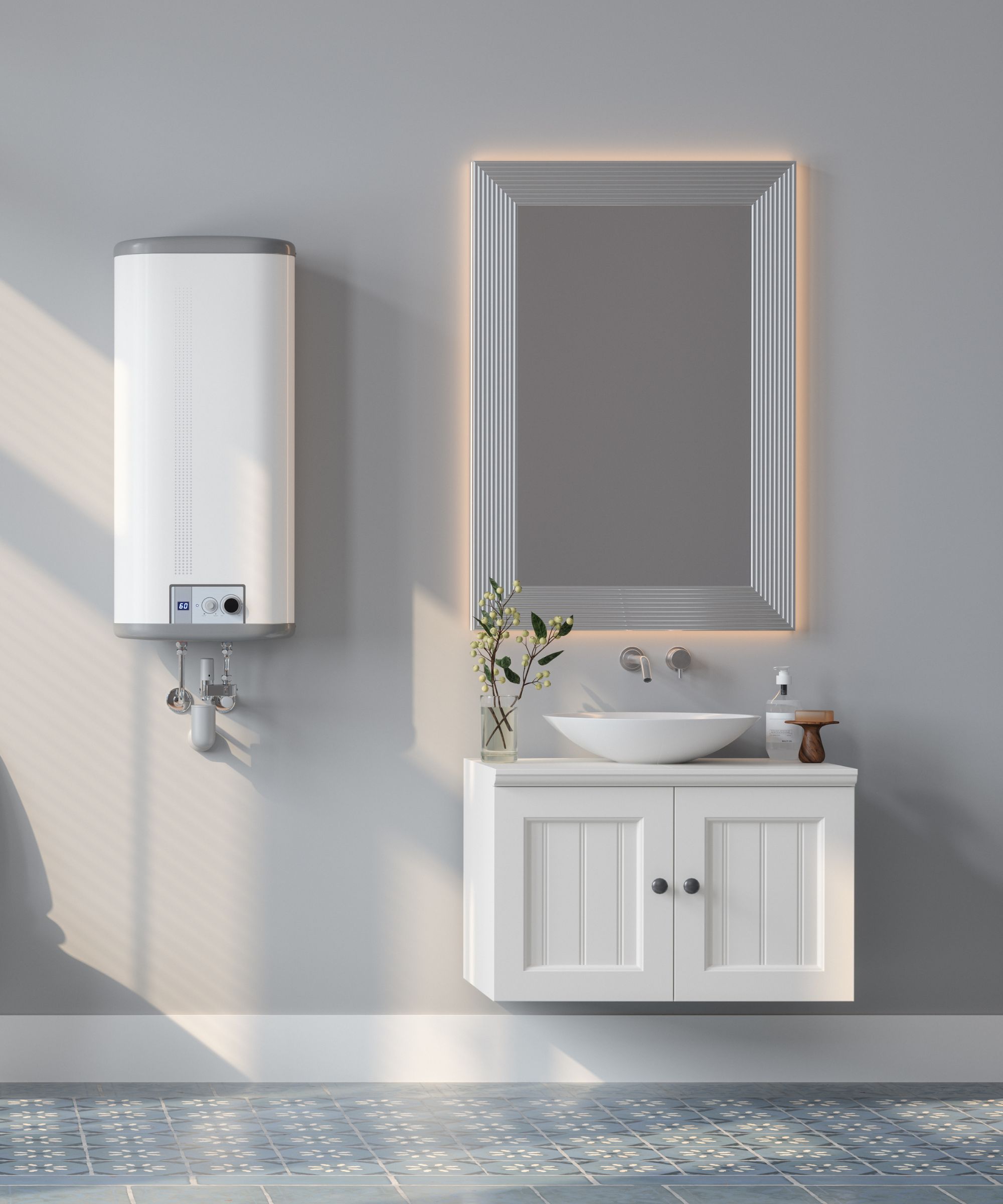
You may decide to drain your water heater if you need to undertake repairs or if you want to close down your house for an extended amount of time.
First, turn off your water heater and let it cool. Turn off the circuit breaker for any electric water heaters. Turn the thermostat to the pilot setting on gas water heaters.
'Next, connect a hose to the heater's drain valve located at the bottom, then point the other end of the hose outside or down a drain,' says Mehdi Khachani. 'To let the water drain, open the valve.'
Be cautious that the water is not still hot and drain it according to the manufacturer's instructions. This will help to prevent any damage to the water heater or the surrounding area.
4. Drain appliances
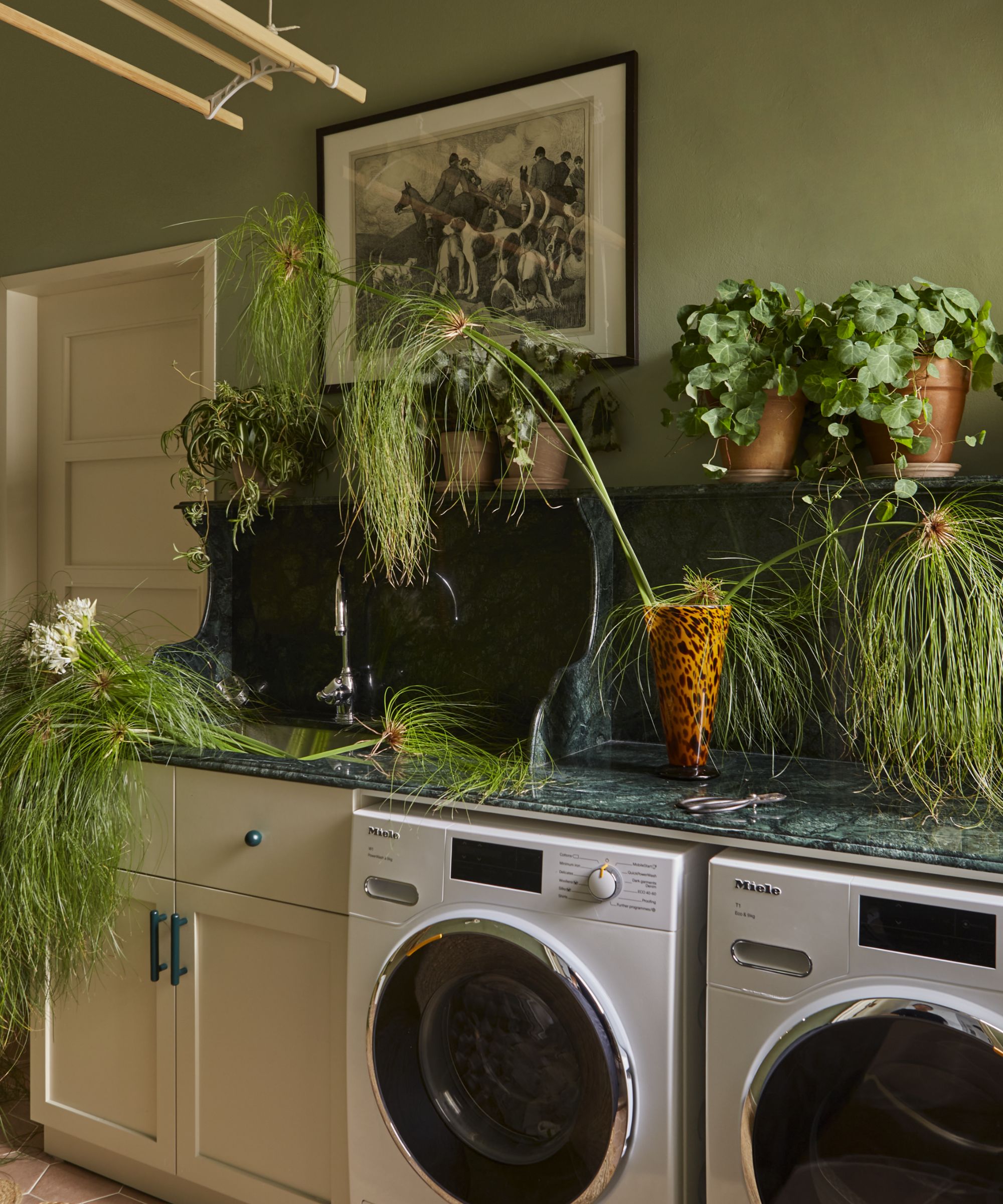
'If you have appliances like dishwashers or washing machines, run a short cycle to clear water from their pipe,' instructs Josh Mitchell.
5. Air out the system
'To ensure complete drainage, allow the system to air out,' advises Mehdi Khachani. 'This can be done by leaving faucets open and drain valves unsealed.'
Josh Mitchell also recommends: 'To ensure all water is removed, you can use an air compressor to blow out any remaining water in the pipes. Connect the compressor to a faucet near the main shut-off valve and blow air through the system, opening and closing each faucet one at a time.'
6. Inspect the system
Check for any leftover water in the system after emptying as much as possible. Use rags or towels to absorb extra water.
'While the system is drained, take the opportunity to inspect for any leaks, corrosion, or signs of wear,' recommends Mehdi Khachani. 'Check for debris and clean drain traps if necessary. Check the conditions of all valves in the system and address any issues promptly.'
After the system is fully drained, go back and close all the faucets.
Additional tips
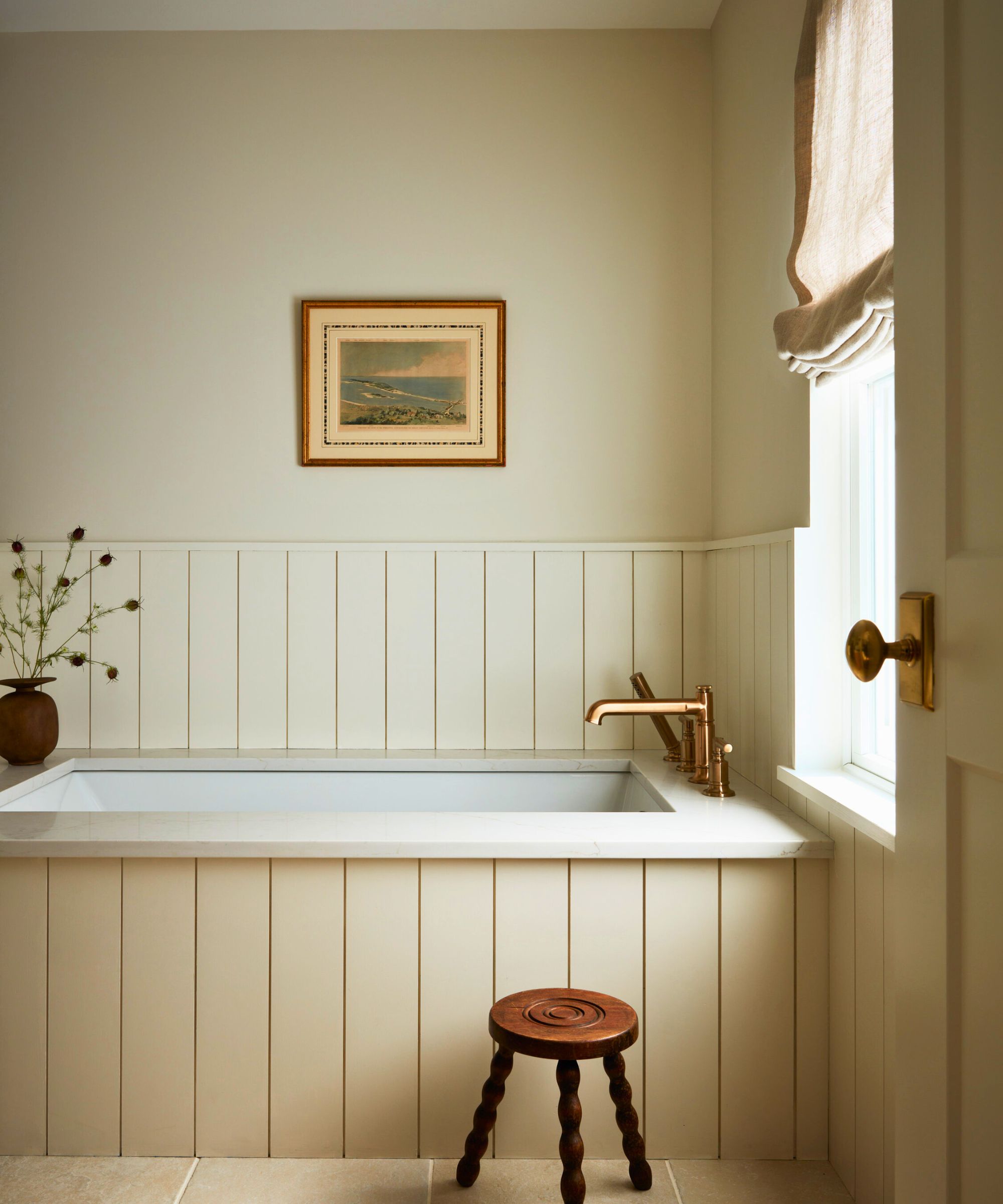
Dealing with airlocks: You may need to bleed air from the pipes by slowly opening taps until water flows consistently if you suffer airlocks in your plumbing system after draining.
Ensure adequate ventilation: During the draining process, to prevent the build-up of harmful gases, open windows or exhaust fans to maintain a well-ventilated environment.
Winterization: Take extra care to prevent freezing if you are draining your plumbing system in preparation for the winter. Josh Mitchell also recommends: 'Pour a small amount of antifreeze down each drain and toilet – such as STAR BRITE antifreeze from Amazon – to prevent any remaining water from freezing.'
Remember, if you are uncertain or uncomfortable with any step in this process, it's advisable to seek professional assistance. A licensed plumber can ensure that the draining and maintenance are done correctly, preventing potential problems.
'Once you've completed the necessary maintenance, close all drain valves and faucets. Turn on the main water supply gradually to allow the system to fill without causing a surge,' recommends Mehdi Khachani, professional plumber and founder of JMK Plumbing. 'After refilling, check for any new leaks or issues and address immediately if found.'




.jpg?w=600)


